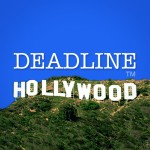“Less Emphasis on the Stars”: Indie Market, and Finding New Talent, In Focus as Sundance Returns
![]()
“Less Emphasis on the Stars”: Indie Market, and Finding New Talent, In Focus as Sundance Returns —
After two years of being virtual-only, the Sundance Film Festival returns — at least, partially — to an in-person format. And the return to Park City comes with a whole lot of questions.“We’ve been back at Cannes, we’ve been back at Toronto, but we haven’t yet been back to Sundance. And, for us, Sundance is the Super Bowl of festivals. It’s really the most important festival for domestic buyers,” notes IFC Films president Arianna Bocco.
The Hollywood Reporter spoke to some two dozen Sundance veterans — including distributors, producers, and sales agents — and top of mind for attendees are questions about the festival’s commitment to a hybrid format, the shake-up in the programming team, and, of course, what a return to in-person screenings will mean for the market. Ask Sight Unseen’s Julia Lebedev, “Is it gonna be the same feeling in the room?”
Like the rest of the industry, COVID-19 prompted changes for the Sundance Film Festival. Since 2020, outside of pivoting to a digital format, the festival has seen turnover within its ranks, with New York Film Festival’s Eugene Hernandez coming in as festival director, replacing Tabitha Jackson, who stepped down after only two years.
While other festivals have abandoned digital offerings as festivalgoers return to on-the-ground attendance, Sundance announced that the 2023 festival would be a hybrid of both the in-person festival, augmented with digital offerings. The hybrid format will see all U.S. Dramatic Competition titles to screen digitally. According to several sources, the requirement prompted a move for some features into other sections of the festival, like the always starry Premieres section, where titles had the choice to opt into the virtual screening.
Still, the Sundance Institute’s modus operandi has remained unchanged — support independent filmmakers and their films. The word most often dropped by Sundance programmers is “discovery,” referencing the uncovering of a little-known filmmaker or project. Says CEO Joanna Vicente, “Sundance has stayed true to itself and has find ways to always do the artist support activities.”
More and more, stories about directors landing agents or their next project have come before the announcements about their Sundance film being acquired. Last year, it was announced that Nanny director Nikyatu Jusu sold her next project to Universal and Jordan Peele’s Monkeypaw a month before Nanny, which earned the Grand Jury Prize, landed at Blumhouse and Amazon.
“It boosts a filmmaker’s profile within the industry, no matter if Sundance is digital or not,” says Tango Entertainment’s Lia Buman, who is bringing Randall Park’s directorial debut Shortcomings to the fest after bringing Eliza Hittman’s Never Rarely Sometimes Always to Sundance in 2020.
Alexis Garcia of Fifth Season (formerly Endeavor Content) says that, as compared to Sundances of yore, there is “less emphasis on the stars.” He adds, “If you look at the biggest sales over the last few years they weren’t particularly star-driven.” CODA and Cha Cha Real Smooth, each of which commanded the biggest price tags at the past two festivals, are notable examples.
Vicente, who helped program this year’s fest prior to Hernandez starting his position, also notes that the Sundance Film Festival also must cater to non-Hollywood festivalgoers, saying, “Sundance is not just an industry festival like a Cannes or a Venice, we have a strong audience component.” According to the Sundance Institute, the 2021 digital festival had a 2.7 fold increase in viewership over in-person attendance at the 2020 in-person festival.
Of course, inextricable from its artists and audience first is also what Sundance offers the industry — a platform and potential sale. Several insiders note that discovery has become the main priority for programmers. “Discovery for discovery’s sake,” describes one festival veteran of the slate. Adds another, “Commercial is not a bad word.”
Heading into this year’s Sundance, Hollywood is more anxious than usual, dealing with the dual possibilities of a recession and a writer’s strike.
Many studios and streamers have already enacted cost-cutting measures, enacting rounds of layoffs and shelving previously greenlit movies and series. Adult dramas, which over-index on any given Sundance line-up, have also been underperforming at the box office (See: The majority of the Oscars best picture frontrunners). Says Bocco, “There is a stamp of approval that you get from Sundance that really is like no other and it doesn’t always translate into economic success.” While this may not bode well for potential sales, slates will also need to be bolstered with finished projects in the event of the WGA calling a strike, as writers seek among other things to improve low streaming residuals. In this case, production pipelines will be upset.
No matter what is happening in Hollywood, the collective hope is that in Park City a return to the Eccles will bode well for films seeking acquisition. Erik Feig, the head of Picturestart (producer and financier of last year’s Cha Cha, which Apple grabbed for $15 million), says the film could have likely benefited from a proper screening in Park City: “Apple took [the movie] to SXSW, and that was the first time that we were able to see it in that environment with a festival audience,” recalls Feig, who is in Park City with new sales title Theater Camp. “It played through the roof, and it’s funny because [an Apple rep] leaned over and said, ‘You know, we would’ve paid more if we saw it like this.’ I was like, ‘Thanks for telling me that.’”
The loss of venues like the Marc and Temple theaters are lamented, while the digital format has been by-and-large begrudgingly accepted. Some believe the 24-hour exclusive window for in-person screenings will be enough time to inspire urgency amongst buyers, building a much-missed air of exclusivity. Says Archer Gray’s Vinay Singh, “If you are going to Park City, you are going for a very deliberate reason, not because like your company is just sending 20 people to send them.”
It is unlikely that any of the questions will be satisfyingly answered during the fest’s 10-day run. Dealmaking will extend for months after the festivals close, a trend that pre-dates COVID. Whatever incarnation Sundance takes, Hollywood will lace up their snow boots and make the trek to Park City. Sighs an agent, “We all feel a need to support the system that has been placed for many, many years.”
View this article at The Hollywood Reporter.

 Previous Post
Previous Post Next Post
Next Post
